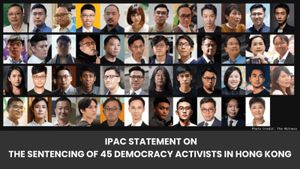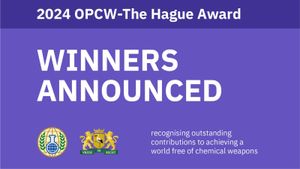The 29th UN Climate Change Conference, abbreviated as COP29, took place from November 11 to 22, 2024, at Baku Stadium, Azerbaijan. This gathering of world leaders, delegates, scientists, and activists was marked by significant discussions and decisions aimed at addressing the pressing climate crisis. While COP29 aimed for ambitious climate finance initiatives, it also illuminated the stark contradictions and challenges inherent to the global climate negotiation process, signaling both hope and frustration among the nations involved.
Among COP29's key outcomes was the announcement of a substantial $300 billion climate finance package, which is expected to benefit developing countries as they navigate the harsh realities of climate change. The deal was depicted as necessary, especially considering the increasing frequency of climate disasters worldwide, which exacerbates the existing vulnerabilities of low-income nations. Yet, many developing countries expressed disappointment, arguing the funds fell short of their needs. Jodi-Ann Jue Xuan Wang, a PhD candidate at the University of Oxford, articulated this perspective: “This is less than a quarter of what developing countries asked for, and not in the form of the no-strings-attached grants money they need.”
The discussions also highlighted the fundamental issue plaguing previous climate conferences: the lack of cohesive definitions around ‘climate finance’. The United Nations Framework Convention on Climate Change (UNFCCC) has failed to establish what constitutes adequate climate funding. Often, financial packages offered by richer nations have consisted of loans, which exacerbate the financial instability of poorer nations rather than alleviating it. A staggering 72% of climate finance received by small island developing states has been allocated as loans, putting them under additional stress as they grapple with the catastrophic impacts of climate change.
This year, the theme of public health intertwined with climate discussions gained considerable traction. With climate change precipitating health risks—from heat-related illnesses to the spread of infectious diseases—the health sector became central to COP29's narrative. Dr. Tedros Adhanom Ghebreyesus, the Director-General of the World Health Organization (WHO), stressed this intersection, stating, “We care about rising sea levels and temperatures because they take land and homes, they make our planet less habitable, they contribute to cardiovascular disease, and they fuel the spread of communicable diseases to new places.” His assertion positioned climate action not just as environmental stewardship but as necessary for preserving global health.
Discussions on public health were bolstered by specific events focused on gender equity and sustainable healthcare systems, emphasizing the multifaceted relationship between climate initiatives and health outcomes. COP29 also marked another proactive step from COP28's legacy of introducing health perspectives, reinforcing the need for integrating health concerns with climate action strategies.
Despite the optimism surrounding health-focused dialogue, frustrations were evident among developing countries. The gap between promises and delivery, alongside the opaque nature of climate finance, has left many feeling sidelined. Their call for clearer commitments—especially concerning whether funds would come as grants or loans—echoed through the sessions at COP29. Activists and delegates from poorer nations viewed the outcomes as insufficient, leaving them with unanswered questions about meeting their adaptation and mitigation needs effectively.
The post-conference analyses highlighted the challenges COP29 faced due to its venue and the lack of strong commitments on fossil fuel reduction. Critics noted Azerbaijan's historical ties to fossil fuels posed inherent conflicts of interest, making substantive discussions on phase-out paths seem hollow. Jacqueline Peel, a professor at the University of Melbourne, observed the reluctance of nations like Saudi Arabia to engage openly on fossil fuels during discussions, undermining the urgency of addressing this core issue causing climate chaos.
Meanwhile, the overall credibility of the UNFCCC faced scrutiny after COP29 concluded without significant agreements on verifiable emissions reductions. Climate scientists and experts opined on the insufficiency of current agreements, indicating governments were still projected to commit to actions leading to temperatures exceeding three degrees Celsius above pre-industrial levels—worryingly far from the 1.5 degrees Celsius target established by the Paris Agreement. Climate scientist Mark Maslin and his colleagues stated, “All this means we are still looking at a future with global warming above 3 ̊C.”
The overarching sentiment from various stakeholders echoed frustrations over the limitations of the COP process. Many developing countries felt the existing framework for international climate negotiations remained flawed, with expectations mismatched to realities on the ground. The reality check following COP29 has raised additional questions about the efficacy of the consensus model governing such summits. Calls for adopting thresholds allowing decisions through majority votes rather than unanimous consent have been proposed as potential solutions moving forward.
Increasingly, the question arises whether high-profile summit events like COP29 have strayed from their original goals. Activists contend these gatherings often devolve, becoming platforms for negotiations rather than decisive avenues for climate justice. Some experts suggest shifting focus from mere negotiations to implementation, ensuring pledges translate to actions marked by accountability and transparency.
Nonetheless, COP29's legacy may revolve around its ambitious health outreach efforts, signaling potential for reconceptualizing public health within climate action. By placing health firmly within the climate narrative, the conference has begun to frame climate risks as public health crises—an approach likely to resonate more deeply as the impacts of climate change continue to manifest worldwide.
Looking forward, as nations prepare for COP30 set to take place next year in Brazil, the groundwork laid at COP29 around health and climate may become increasingly pivotal. With clear objectives, measurable accountability, and wellness at the forefront, the hope is for future discussions to bridge gaps between developed and developing nations, propelling actionable commitments aimed at effective climate solutions.



